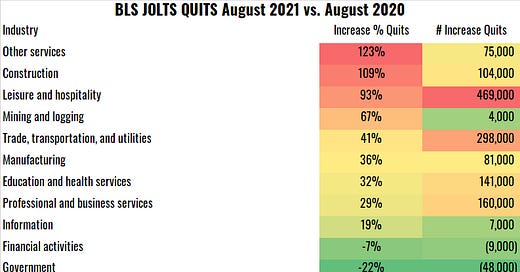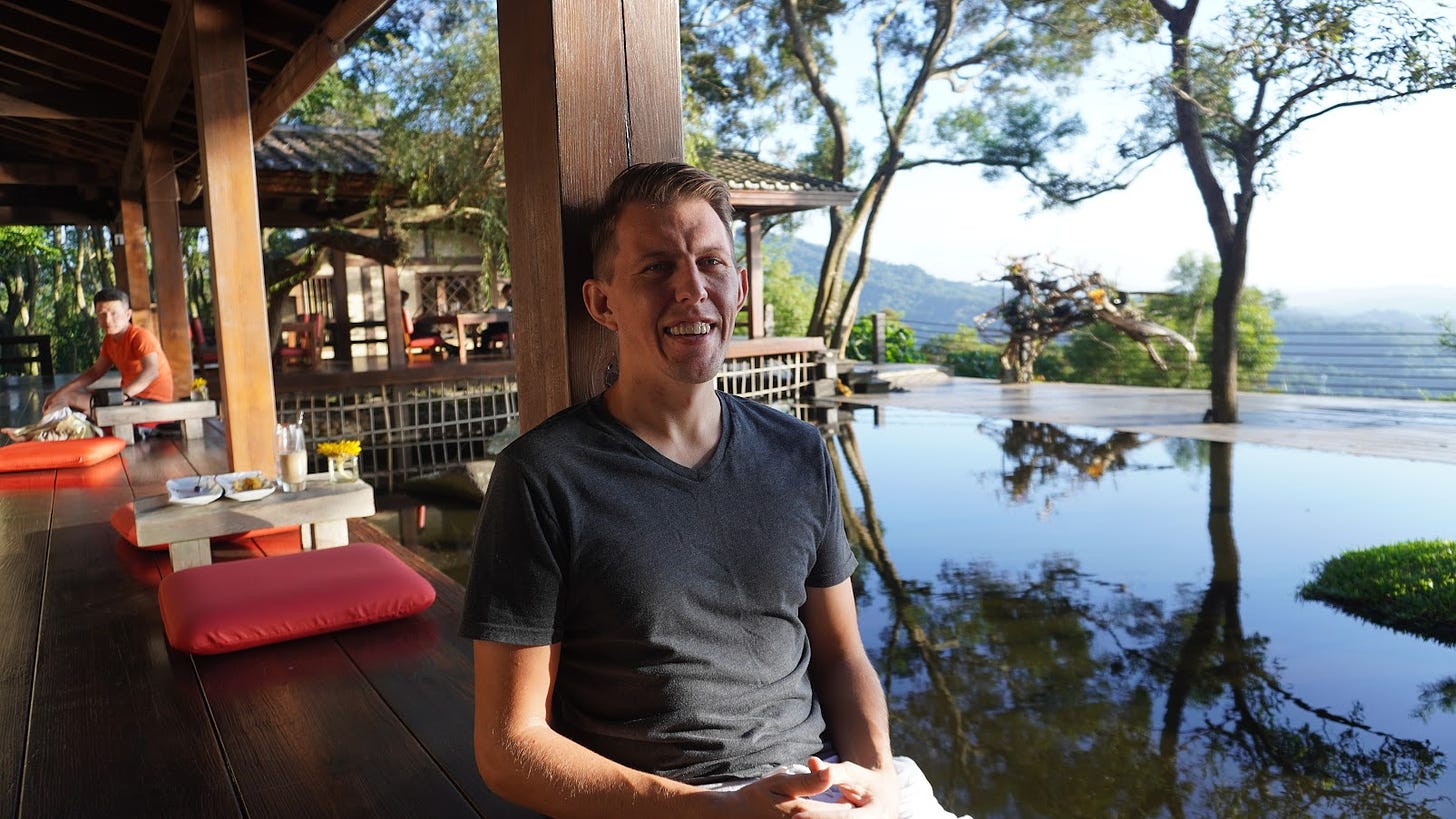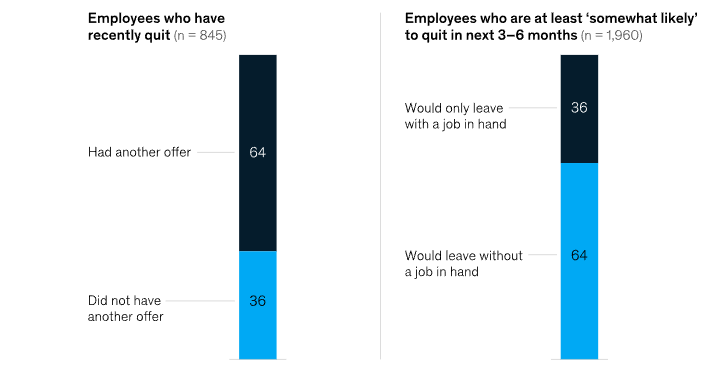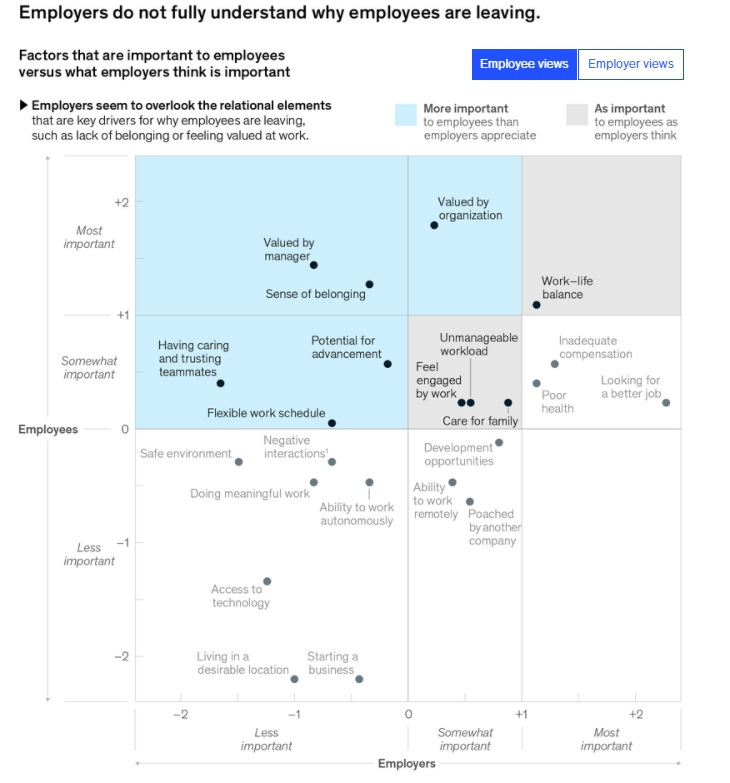Are The "Great Resignation" & "Antiwork" Real? | #158
I don't know but it does seem a general rethinking of work is underway
October 23rd, 2021: Greetings from Taichung. This is our final week in Taiwan. We’re looking forward to being back in the US, the land of abundant vaccines and job openings. Here’s a photo from a tea shop we went to in the surrounding mountains of Taichung.
Hey internet friend! I write a newsletter every Saturday to 5,300+ people from around the world about finding new paths in the world, improving our relationship with work & how to build a life by working & making things online. I’d love if you’d join us!
#1 Antiwork, The Great Resignation & Other Narratives - Are They Real?
Yesterday I was talking to a friend. He said, “have you seen the r/antiwork Reddit? It’s blowing up.” I went over there to take a look and since August it looks like it’s doubled from 400k to 800k followers.
The person that told me this was reaching out to explore his relationship with work as many people have in the last year and a half. He’s in a great job but is sensing something is off both in how he’s thinking about work and what’s happening at his company. He told me that people have stopped buying into the “performance” of work (his words) and everyone is feeling that they are showing up to a theater and not sure that they still want to play their parts.
I sense something shifting but it’s hard to know what is real or what is just a media-fueled talking point that everyone was adopting. In 2021, we’re also living with the knowledge that something that starts as a meme can quickly become reality (Gamestop still at 169!) in a way that defies our expectations.
So I went down a rabbit hole and explore both the “great resignation” and “antiwork.” Generally, the evidence for both is shaky and the strength of the narrative framing around both terms is not so strong either.
What the heck is “antiwork”?
I still am not sure what to make of this “antiwork” meme and the way that that the media is jumping on this feels a bit forced:
Here is a snippet from the New York Time pieces which felt more like throwing a festivus-fueled grievance fest than a thoughtful take you might read from Derek Thompson:
I’ve been reading /antiwork for months, and I’ve been surprised to find myself joining in the visceral thrill of seeing people wrest the reins of their lives from the soul-sucking, health-destroying maw of capitalism.
What the hell is the “maw of capitalism” DAMN. There are issues with work but I don’t think this is it. Once the author calmed down, he was a little more reflective and this quote captures something I’ve heard from quite a few people:
I’m embarrassed to say I didn’t really realize how much work ruled my life until the pandemic — until this huge meteor took aim at our lives and forced me to reconsider what I was doing.
Fueled By The “Great Resignation”
This antiwork meme is fueled by a a broader “Great Resignation!” narrative that has been pushed for a solid month, which also feels a bit forced. The smoking gun for this narrative seems to be the “Quits” numbers in August from the BLS, which came in at a record 4.2M. This was definitely high but not wildly out of line with trends of the last ten years:
Breaking this down by industry, however, we see that a lot of this is driven by construction, trade (supply chain issues?), construction, and hospitality. I think its too soon to apply our own preferred take to any of this.
I don’t really know what to conclude from any of this. There are a lot of anecdotes about why people are quitting but it’s still too early to know what’s happening. People haven’t fully adapted to changes in subsidies, pandemic regulations, and inflation for me o draw any strong conclusions. In addition the supply chain issues are only starting to be understood.
Data from the next few months will definitely be interesting to watch.
Networked Public Tribes & Revolt of The Public
An interesting lens through which to see all of this is through a combination of John Robb’s networked tribes and Martin Gurri’s revolt of the public.
Robb argues that the internet enables people to quickly find each other and rally around certain topics. His perspective on this was shaped by what the US military was facing in Afghanistan after 9/11. Empowered by mobile devices, terrorist groups were much more fluid and less legible than militaries had seen before.
Gurri adds a second piece. A former CIA analyst, he wrote a book about the large-scale movements that started in the Middle East in 2009, or the “the Arab spring.” While most people were hailing it as a victory for democracy, he saw that this groups didn’t really heave clear leadership, structure, goals, or priorities.
These groups also started unexpectedly, mostly via social media. They all shared one thing: they enabled alignment by being broadly against things. Gurri cites many examples (anti-trump, anti-capitalism, anti-work, anti-elite, anti-establishment) . The problem with these kind of movements is that they ony unite people in their shared repudiation of a broad ambiguous cause and because individuals are bringing their own individual perspective, reaching any sort of consensus about what the group wants is impossible.
I think this is what is happening with something like r/antiwork. I spent an hour going through it and its really just 15-20 different grievances with work, labor, and capitalism broadly.
“Striketober” Too?
This brings us to “striketober,” another term that has been thrown into the mix. First off, these work memes are getting out of hand. This has also been my personal rabbit hole for the last few years. When will they discover Fromm and Bertrand Russell and have a more interesting conversation!?
When I dug into the strike claims I struggled to find convincing evidence that any sort of black swan movement was happening. However, the combination of all three of these things seems to indicate something is afoot. At minimum it seems to be pushing back on the police in our head that tell us what is good or bad to do.
Where Is This All Going? Three More Factors
I don’t have a good feel where any of this is going. If you look at high-level unemployment numbers you can convince yourself everything is fine, but if you factor in the 2% of people who seemed to have pulled out of the labor force, something bigger does seem to be happening.
Everyone has their favorite explanation but I find most of them too simple or forced. Here are a few additional data points which I won’t try to force fit into any narrative but nonetheless I find interesting:
More “screw work” energy: Among my friends who are self-employed, many of them report more “screw work” sentiment in people who are in regular jobs:
A lot of what holds our current ideas of how work should work together is the preferences of ambitious high-wage full-time employees. If that changes, all bets are off on how work changes.
More people willing to quit w/o offers: McKinsey has some interesting research finding that increasing numbers of people are saying that they will leave a job without another one:
Quitting without another job is taboo but this may be a sign that people are done with buying into that. If this stigma and shame associated with not having a job softens, it could change the perceived social stigma of not having a job.
There might be an opportunity for employers to solve some of these challenges, but they’d have to talk to their employees! McKinsey found a pretty big disconnect in terms of what employers think people want and what employees actually want.
This chart is a little hard to read but it’s basically saying:
What employers think people want: fully remote work, higher pay, development opportunities
What they actually want: caring teammates, better managers, promotions (not “development”), belonging, and flexible work (not fully remote)
Money From Non-Labor Sources: Another interesting factor is the changing speed in how quickly and how much people are able to earn through work. The tech economy has changed the velocity of money and many people who expected to work their whole lives are finding that the money they have acquired says otherwise. Devon is noticing this in her circles:

In addition to tech money, baby boomer money (nice term) is flowing down to the next generations. The 70+ crowd in the US supposedly has $35 trillion in wealth. That money has to go somewhere and eventually it will flow to younger people. Will this convince people to work less or approach work in a different way? Undoubtedly.
Verdict:
Many people have had a sort of mini-awakening about their relationship to work during the pandemic. However, people don’t know how to voice this discomfort.
This makes something like “anti-work” attractive but ultimately, the kind of people I talk to are not that angry. They like work and want to work. Anti-work is likely too negative of a term to last.
It’s also a bit funny seeing American’s lead the charge here, one of the best places to work and with some of the best pay in the world. In Taiwan, I can think of plenty of people who would be gladly take the US working conditions. One thing to watch will be if these memes spread abroad. East Asia and other places are far behind the US when it comes to benefits, compensation & autonomy at work.
Time will tell.
Gurri and Robb tell us that these kinds of movements tend to lose energy and fizzle out almost as fast as they emerge. This is because they are a collection of random voices with many different grievances. This is the sense I get when scrolling through r/antiwork. It’s not a cohesive voice but a number of different issues with work: low pay for service workers, bad managers, billionaire anger, corporate power, etc…
One interesting date to watch in the US will be black Friday. Will workers decide not to show up? Will companies dramatically increase overtime pay? I doubt people will be able to withhold purchases, but it’s definitely a date worth watching.
I’m still very open-minded and curious about all of this, if you have thoughts, hit reply or leave a comment and I’ll share some of the responses next week.
+ Gurri’s book Revolt of the Public is a great read and if you want to learn more about Robb’s networked tribe idea, this podcast is the best place to start.
#2 Reads 📖
Some Selected things I liked this week:
💡 Anton Howes argues it is rarer than we think:
The more I study the lives of British innovators, the more convinced I am that innovation is not in human nature, but is instead received. People innovate because they are inspired to do so — it is an idea that is transmitted. And when people do not innovate, it is often simply because it never occurs to them to do so. Incentives matter too, of course. But a person needs to at least have the idea of innovation — an improving mentality — before they can choose to innovate, before they can even take the costs and benefits of innovation into account.
🏠 A modern love column from Logan Ury on cancer, coliving, and community
🏆 Matt Clifford argues that “building technology startups will become the ‘default’ career path for the world’s most ambitious people.”
🤳 On how slack has changed the dynamics of the workplace
Part of Slack’s tremendous capacity to build culture is its ability to rapidly homogenize views, and police what’s acceptable. “This is a struggle every day for every CEO that has a full-blown Slack environment,” Miles said. “There’s an amazing, powerful, positive side to Slack. The negative side is that you create an us-and-them dynamic in the context of your company across multiple dimensions. You create conflict and tension.” Whether you view this as an opportunity or a threat probably depends on your place in the hierarchy.
and a fair conclusion
Whether Slack is better or worse than email, good or bad for workers and bosses, liberating or oppressive or dangerous or delightful or all or none of those things, it’s here.
🎧 Tiago Forte on his experiment of time traveling through 100 podcast episodes of Pat Flynn’s entrepreneurial journey
Learning in this way also allowed me to gain tremendous perspective on how trends work. When a new kind of technology or hot platform first emerges, it always seems like it’s going to take over the world. Everyone’s talking about it and its future dominance seems inevitable. But if you follow the most-hyped trends closely, you’re always going to be jerked in one direction after another…and never actually arrive anywhere.
#3 Book Covers
I kicked off a book design contest on 99 designs this week and it’s been hard to figure out what I like and don’t like.
The design is still in progress but thought I’d share the intermediate steps. Here are some of my early favorites
The next round is to pick six designers and then move closer to a final design.
If you want to offer feedback you can in this poll
You can also grab e-book in the pre-sale here.
I am focused on building a life around exploring ideas, connecting and helping people, and writing. If you’d like to support me directly the best way is to consider becoming a paid supporter of the newsletter.
Alternatively, I use and love all of the following services and they give me 30% of all revenues from people that sign up. If you plan on launching a course or e-mail list and you end up using my affiliate code, I’ll gladly spend an hour helping you get set up and answering questions. Just let me know!
Podia - 14-day free trial (read my review here)
Teachable - 14-day free trial
ConvertKit - First 1k subscribers for free
A reminder: I don’t check unsubscribe alerts and never look at my subscriber list. So if you feel like unsubscribing, you can do so below.















While reading it I had to think about the concept of balance (from a social network perspective). In the simplest form the idea is this: three people/countries/org form a balanced triad (group) if their relationships are all positive.for example: if I read Paul’s newsletter (positive relationship) and Paul reads Rosies newsletter (positive relationship) then I, over time, will start reading Rosie’s newsletter.
I haven’t fully formed an idea about how this balance relates to anti work/the great resignation. If people, work and living form a triad, then for the triad to keep existing the relationships need to be balanced.
In some way the relationships between people, work, and living are changing. Leading to a change in the structure. Another node (concept) might emerge (e.g. sabbatical, side project…)